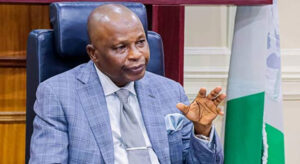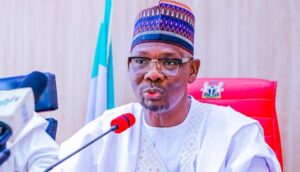The Minister of Women Affairs and Social Development, Hajia Imaan Sulaiman-Ibrahim, has revealed that nearly one in three Nigerian women between the ages of 15 and 49 have suffered physical violence, while more than a quarter have been victims of sexual violence at least once in their lives.
She noted that these figures paint a grim picture of the country’s struggle against gender-based violence, even though some progress has been made.
Sulaiman-Ibrahim made the statement in Abeokuta, Ogun State, on Tuesday, September 9, 2025, during her visit to the Sexual Assault Referral Centre (SARC).
She was welcomed to the state by top female leaders, including Deputy Governor Engr. Noimot Salako-Oyedele, First Lady Mrs.
Bamidele Abiodun, and the State Commissioner for Women Affairs and Social Development, Hon. Motunrayo Adijat Adeleye.
In her speech, the Minister stressed that 31% of Nigerian women face physical abuse, while 28% experience sexual assault. She reminded the public that these are not just statistics but real people — daughters, mothers, and neighbors.
According to her, gender-based violence is not a private matter but a social crisis that affects peace, family life, and development.
She called on stakeholders to act urgently with compassion and commitment. Under President Bola Tinubu’s Renewed Hope Agenda, she explained that her ministry has woven this vision into social programs designed to restore dignity, strengthen families, and ensure no woman or child is left behind.
Ogun State’s Women Affairs Commissioner, Hon. Adeleye, explained that the Sexual Assault Referral Centre and the Women Development Centre were created to help survivors heal and rebuild.
According to her, healing is not just about treating wounds but also about rebuilding lives and restoring hope.
She added that the state government has continued to protect women and children through sensitization walks, grassroots trainings, empowerment programs, and child-focused initiatives.
“At the SARC, survivors arrive in pain but leave with renewed strength,” Adeleye said. “They find treatment, comfort, and support to start over.
But we also realized they need more than healing — they need renewal. That’s why we built the Women Development Centre close by, to give them that extra step forward.”
The commissioner urged the Federal Government to give more support in terms of funding, awareness campaigns, stronger policies, and wider programmes so that no survivor is left behind.
She concluded by saying: “If Ogun State has lit the flame of protection and empowerment, then the Federal Government should fuel it to ensure it never goes out.”







